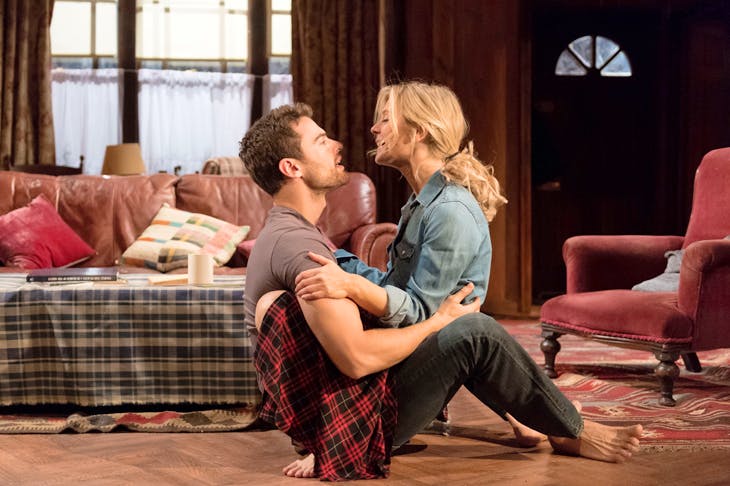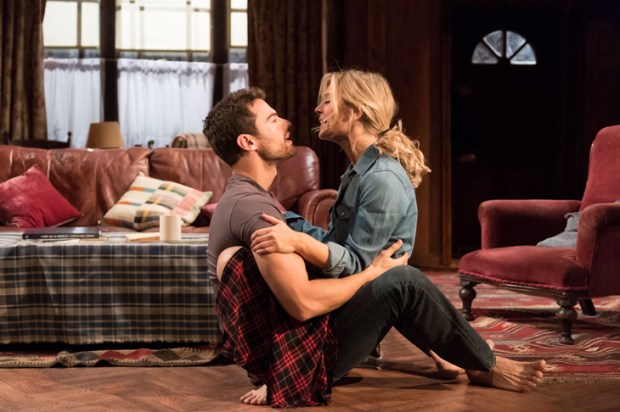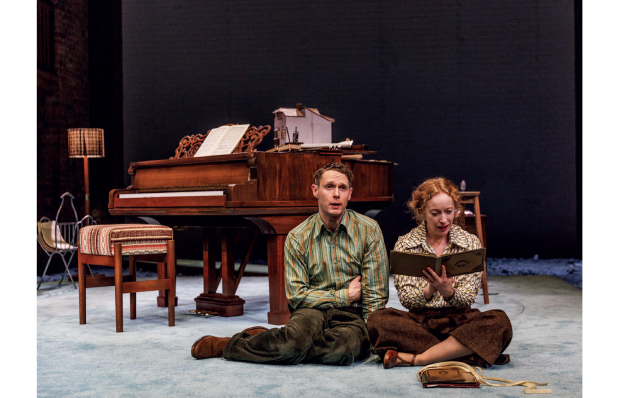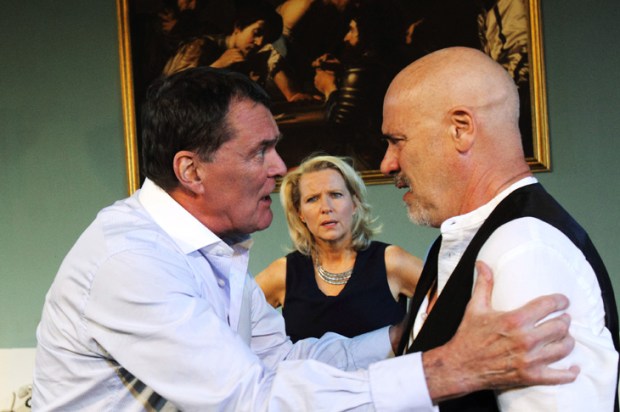Tennessee Williams’s breakthrough play is a portrait of his dysfunctional family. A young writer, Tom (Williams’s real name), lives with his effusively domineering mother and his painfully coy sister, Laura. Mother, once a famous beauty, gets Tom to find an eligible chap for Laura. Tough call. Beautiful Laura has a deformed ankle and she’s just flunked out of secretarial college after suffering the embarrassment of vomiting over her type-writer. She now pines away at home forming sterile friendships with a colony of animal statuettes lodged in a glass case.
This set-up has the delicious simplicity of a comedy sketch. The conflict between the unstoppable mother and the self-effacing daughter promises fun galore. And we can’t wait for the suitor to show up because we feel certain he’ll be an insensitive oaf who mocks Laura’s shortcomings or a fast-talking cad who leaves her heart in ruins. But he’s neither. The ‘gentleman caller’ is a true gentleman. He’s handsome, bright, charming and modest and he not only finds Laura attractive but he also knows how to stimulate her confidence and to convert her from a gibbering sniffler into a functioning adult. But there’s a big snag and its disclosure turns the play from a melodrama into a tragedy.
This smooth-running production, imported from America, is exquisite to look at. Michael Esper gives Tom a rasping anger that makes him sometimes hard to warm to. Brian J. Smith, the suitor, is good in a boxy kind of way but he lacks that final layer of philosophical romanticism that would make him irresistible and the play’s conclusion all the more heartbreaking. This leaves Cherry Jones (a beautifully understated Amanda) to steal the laurels.
Another American import at Hampstead. Middle-aged novelist Olivia is holed up in a snowbound hotel when hunky Ethan (ten years her junior, and also a writer) marches in and tries to seduce her. She resists. Then he quotes her first novel, and she melts into his arms. Their affair revolves around their publishing difficulties. Olivia is still stung by the negative response to her first novel and she’s reluctant to release a sequel. Ethan is more worldly. He’s a star blogger who has turned his shag-tastic social life into a bestseller that is already being touted as a possible movie. He wants to help Olivia with a new digital gizmo that will promote her book online. They discuss blogging, agents, digital profiles, the choice between ebooks and print-on-demand. But these issues feel a bit dated. E-publishing is already dying because the world has realised that a book is more than just a store of words. It’s a commodity, a gift, a badge of honour. You can’t slide an ebook under a Christmas tree. Nor can you place a PDF of Beowulf on your bookshelves to advertise your erudition.
The lovers move to the city where their bond endures but their careers diverge. Up goes Ethan while Olivia stalls. The characters become increasingly hard to unscramble. Olivia is a technophobe whose ancient laptop is the size of a picnic hamper, and when her book appears online she’s too anxious, or incompetent, to study the comment threads or to read her royalty receipts. Ethan even has to check her sales figures for her. Yet when Ethan is absent she has no trouble monitoring his whereabouts on Google. So she feels like two personalities: the ageing klutz baffled by new technology and the paranoid cougar stalking her toyboy across cyberspace.
Ethan turns into a blend of four or five personalities. He’s a sex-stud blogger who shot to fame churning out soft porn. He’s a fêted screenwriter who accepts high fees to show up at Las Vegas parties. He’s a tech entrepreneur with a new app that will revolutionise digital publishing. He’s a devoted muse who gladly acts as Olivia’s unpaid agent. And, by the end, he’s a hugely talented author of serious literary fiction. His emotional life is just as contradictory. He’s clever, amusing, sexually attentive and apparently devoted to Olivia even though she’s a needy stay-at-home pushing 40. But he’s also a busy chick magnet who jokes about women in tones of demeaning triumphalism.
Both Ethan and Olivia are loaded with qualities that would be better distributed between half a dozen characters. The writer, Laura Eason, is a Netflix inmate who spends her time writing hours of drama for yuppies to doze through on a Sunday night. This play feels like a side project in which she explores a theme — writers discussing writing — that TV can’t accommodate. Yet the script’s many productions in America suggest that it has some appeal. Wannabe chick-lit authors who fantasise about a hunky brainbox who can publish their work and keep their bedposts trembling will adore it. That’s all it is. Literary escapism for anxious scribblers.
Got something to add? Join the discussion and comment below.
Get 10 issues for just $10
Subscribe to The Spectator Australia today for the next 10 magazine issues, plus full online access, for just $10.














Comments
Don't miss out
Join the conversation with other Spectator Australia readers. Subscribe to leave a comment.
SUBSCRIBEAlready a subscriber? Log in